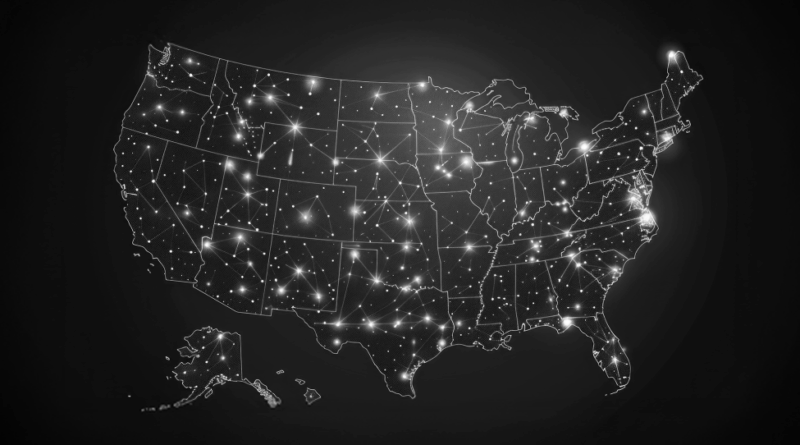Tennessee Public Broadcasting Stations Resolute Amid Budget Cuts
Despite facing unprecedented challenges following substantial budget setbacks from Congress, Tennessee’s major public broadcasting entities, The Public Broadcasting Service (PBS) and National Public Radio (NPR), have reassured their surrounding community that they remain steadfast in their mission. A recent gathering at Nashville’s PBS station evolved into a rallying cry for continued service in the face of adversity. The station’s normally scheduled program, ‘Slice of Community,’ found its usual roster of local community movers and shakers replaced by key representatives from the local PBS and NPR stations for a candid conversation on the future of public media in Tennessee.
In particular, the discussions included pointed contributions from Avery Hutchins, the Chief Executive Officer of Cookeville-based PBS affiliate WCTE, WNPT Nashville PBS station’s CEO, Becky Magura, and Mack Linebaugh, the VP for Audience and Content at WPLN, Nashville’s NPR station. Together, these three figures spoke powerfully about the void that would be left without federal funding support, and expressed their collective determination to overcome these new obstacles and ensure the continuation of their services.
In a heartfelt declaration, Avery Hutchins validated the stations’ standing in their communities, stating, ‘We are regarded as a reliable information source by many.’ Pointing out the collective strengths of the organizations, she added, ‘We need to bolster this virtue and always keep our primary mission in focus.’ Thus, despite budgetary challenges, the dedication to continue serving their communities seemed unmistakable among this group of leaders.
The congressional measure, titled the ‘One Big Beautiful Bill Act’, which came into effect on July 18, has left the nonprofit Corporation for Public Broadcasting (CPB) without federal support for the first time since its establishment in 1967. The measure, affecting the nominal amount of only 0.01% of the total federal budget, equates to roughly $1.06 per citizen each year, but its impact on local public media entities is far more substantial.
The withdrawal of federal support implies that local stations such as those operating under PBS and NPR in Tennessee will lose out on critical grant funding, affecting a vast range of services provided by them. From news production to educational programs and weather updates to emergency alerts, everything appears to be at risk in the wake of these cuts.
Until the recent cuts, CPB had allocated a sum of approximately $7,365,199 to public radio and TV outlets throughout Tennessee for this fiscal year. But with the sudden withdrawal of that funding, these stations are scrambling to generate alternative streams of revenue. The situation is particularly challenging for stations like WCTE in Cookeville, a single TV station serving an area with a radius of 75 miles, which depended on funding for 40% of its budget.
Data from PBS reveals that the extent of funding from CPB varied across different stations: Nashville’s station received approximately 20% of its funding from CPB, Cookeville received 40%, Lexington 45%, Memphis 21%, while both Knoxville and Chattanooga stations drew between 30% to 45%. Nevertheless, all these stations collectively cater to a massive audience: well over 6 million individuals across numerous states and persistently cover immense rural regions.
For residents of the upper Cumberland, which is comprised of large rural expanses, the Cookeville station is the only source of television. In these areas, many people lack access to alternative forms of media and communication, such as mobile signal or fiber-based broadband. Therefore, stations like WCTE become the sole source of important information such as weather reports, Amber Alerts, and emergency broadcasts.
Expressing concern over the drastic funding cuts, Becky Magura pointed out the irreplaceable nature of their services. ‘We provide something that cannot be duplicated,’ she warned, using the assembled team as a metaphor for the exemplary roles their media outlets perform. She passionately pointed out that these stations embody the principles of public resources like public health, education, and roads—benefitting everyone without bias.
As these public institutions grapple with the monetary shortfalls, an unexpected silver lining presents itself in the form of immense public support. Magura narrated their experiences of overwhelming solidarity and support from locals when they learnt about the funding cuts. This was echoed by Linebaugh who commended the commitment demonstrated by devoted audience members in Nashville.
Mirroring this spirit of determination, WPLN’s recent fundraiser turned out to be a resounding success. Their listeners came together to cover the staggering $400,000 hole left in their budget by the funding cuts in an impressive display of community participation. This was celebrated as their largest and quickest fundraising initiative in the station’s history.
At the conclusion of their event, an emotional Magura expressed her deep-seated appreciation for the remarkable support shown by the community. She emphasized the resolve of these public media stations to persevere in these trying circumstances, but also noted, ‘We can’t do this without the people. Their voices and support will be vital for our survival.’
In conclusion, although the repercussions of Congressional funding cuts may be significant for local public media outlets, the spirit of resilience and strong community support exhibited in states like Tennessee offer a beacon of hope amid prevailing uncertainties. It’s clear that everyone who has a stake in maintaining this public resource will have a crucial role in its survival, defying adversity with a combination of grit, resilience, and collective effort.



